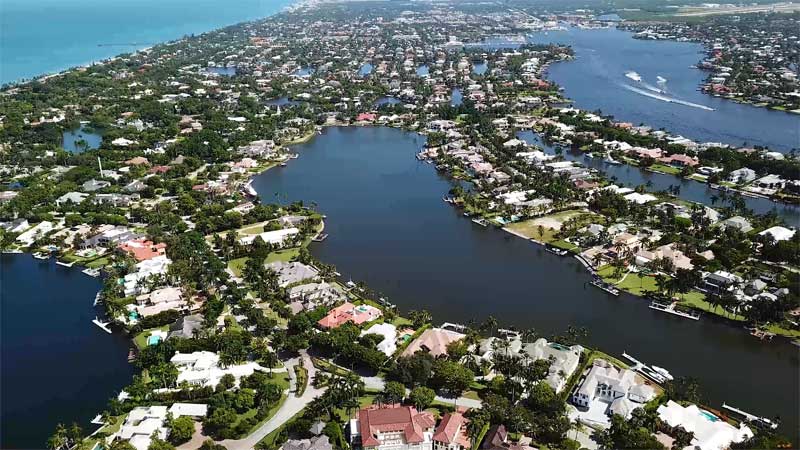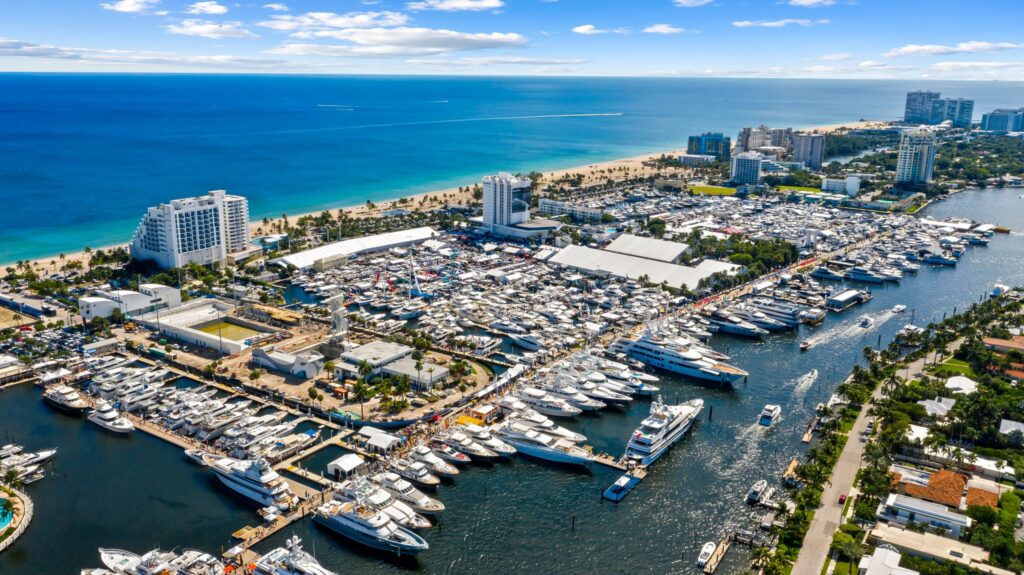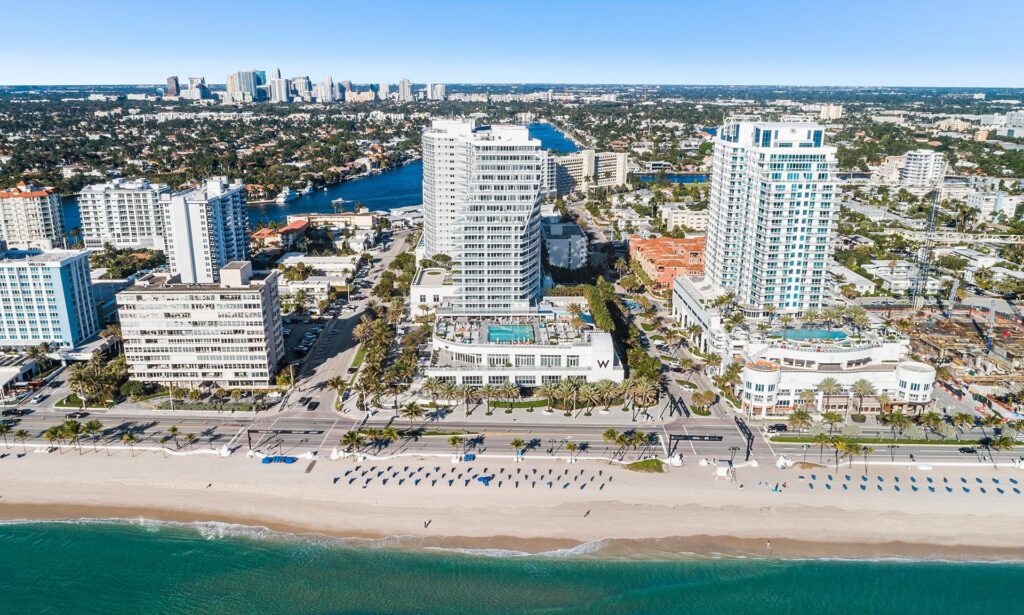Waterfront real estate properties have a unique charm that captivates both homeowners and investors. The allure of living by the water, whether it’s a serene lake, a picturesque river, or the vast ocean, offers an exceptional quality of life. The tranquil surroundings, stunning views, and access to various water activities make waterfront living highly desirable.
From an investment perspective, waterfront real estate has proven to be an excellent choice. The demand for such properties remains consistently high, ensuring a steady market for buyers and sellers. Additionally, waterfront homes appreciate more than their inland counterparts, making them lucrative long-term investments.
This article will explore the benefits of investing in waterfront real estate and provide valuable insights to guide your decision-making process.
Factors to Consider Before Investing
Before diving into the world of waterfront real estate investment, it’s crucial to consider several factors that can significantly impact your investment journey.
2.1 Location and Market Demand
The location of the waterfront property plays a vital role in its investment potential. Properties in sought-after areas with strong market demand tend to have higher appreciation rates and attract a larger pool of buyers or renters. Researching local market trends and understanding the demand-supply dynamics will help you identify lucrative investment opportunities.
2.2 Property Types and Amenities
Waterfront real estate encompasses many property types, including single-family homes, condominiums, vacation rentals, and commercial properties. Each property type has its pros and cons, and understanding them will allow you to align your investment goals and preferences with the right property choice. Additionally, amenities such as boat docks, beach access, or proximity to recreational facilities can significantly enhance the property’s appeal and potential returns.
2.3 Potential Risks and Insurance
Investing in waterfront properties comes with its fair share of risks. Coastal properties may be susceptible to hurricanes, flooding, or erosion, while lakeside properties can face water levels or quality issues. Assessing these risks and obtaining appropriate insurance coverage is crucial to protect your investment against unforeseen circumstances.
2.4 Financing Options
Financing a waterfront property investment may require specialized loans or mortgages. Explore various financing options and consult with lenders specializing in waterfront real estate to ensure you secure the best terms and rates. Understanding the financial aspects and planning your budget will help streamline your investment process.
Advantages of Waterfront Investments
Investing in waterfront real estate offers several advantages, making it an attractive option for investors. Let’s delve into some of these benefits:
3.1 Natural Beauty and Lifestyle
Waterfront properties provide residents with unparalleled natural beauty and a captivating lifestyle. Waking up to breathtaking sunrises or enjoying waterfront activities like boating, fishing, or swimming can enrich one’s quality of life. The serene environment and the soothing sound of waves create a peaceful ambiance that is highly sought after.
3.2 Limited Supply and High Demand
Waterfront properties are often limited in supply due to land scarcity and regulatory restrictions. This scarcity, coupled with the high demand for waterfront living, creates a favorable market for investors. Limited supply ensures that waterfront properties maintain their value and have the potential for appreciation over time.
3.3 Potential for Appreciation
Historically, waterfront real estate has demonstrated strong appreciation rates. The combination of limited supply, high demand, and the desirability of waterfront living contributes to the long-term value appreciation of these properties. Investing in waterfront real estate can provide substantial capital gains over the years.
3.4 Rental Income and Vacation Homes
Waterfront properties are often in high demand as vacation rentals. Investing in a waterfront property can generate rental income by leasing it to vacationers or long-term tenants. The allure of waterfront living attracts travelers seeking memorable experiences, making it an appealing option for generating consistent rental returns.
Challenges and Considerations
While waterfront real estate offers lucrative opportunities, it’s essential to know the challenges and considerations associated with such investments.
4.1 Environmental Factors and Risks
Investing in waterfront properties means exposure to various environmental risks. Coastal properties can be vulnerable to storms, rising sea levels, and erosion, while properties near lakes or rivers may face challenges related to water levels or seasonal changes. Conducting thorough due diligence on the property’s environmental factors will help you make an informed investment decision.
4.2 Higher Purchase and Maintenance Costs
Waterfront properties often come with higher purchase prices compared to inland properties. The prime location and desirable features contribute to the premium price tag. Additionally, maintenance costs for waterfront properties can be higher due to exposure to harsh elements like salt water or increased wear and tear from water-based activities.
4.3 Regulatory and Zoning Restrictions
Waterfront properties are subject to specific regulations and zoning restrictions to protect the natural environment and preserve the coastal or lakeside ecosystems. These restrictions may limit property modifications and development options or require additional permits. Understanding the local regulations and zoning laws is crucial to ensure compliance and avoid any legal complications.
Tips for a Successful Waterfront Investment
To maximize your chances of a successful waterfront investment, consider the following tips:
5.1 Research and Due Diligence
Thorough research is key to any real estate investment, and investing in waterfront properties is no exception. Study market trends, comparable property values, and the potential for future development. Perform due diligence on the property’s condition, including inspections, environmental assessments, and any additional permits required.
5.2 Engage Local Experts
Consulting with local real estate agents, property managers, and legal professionals specializing in waterfront properties can provide valuable insights and guidance. Local experts possess in-depth knowledge about the specific market, regulations, and potential risks associated with waterfront real estate.
5.3 Assess Long-Term Growth Potential
Consider the long-term growth potential of the area where the waterfront property is located. Infrastructure development, economic growth, and demographic trends can influence property values and rental demand. Investing in areas with a strong growth trajectory can maximize your investment returns over time.
5.4 Understand Property Management
Understanding property management is essential if you plan to generate rental income from your waterfront property. Evaluate the feasibility of managing the property yourself or consider hiring a professional property management company. Proper management ensures the property is well-maintained, tenants are satisfied, and rental income is maximized.
FAQs
Is investing in waterfront real estate only for the wealthy?
No, investing in waterfront real estate is not limited to the wealthy. While waterfront properties can come with a higher price tag, various options suit different budget ranges. Exploring different locations, property types, and financing options is important to find an investment opportunity that aligns with your financial capabilities.
How can I finance a waterfront property investment?
Financing options for waterfront properties are similar to those for other real estate investments. You can explore traditional mortgages, specialized loans for waterfront properties, or even consider partnering with other investors. It’s advisable to consult with lenders specializing in waterfront real estate to understand your financing options.
What are some popular waterfront locations for real estate investment?
Popular waterfront locations for real estate investment vary depending on region and personal preferences. Some renowned waterfront destinations include Miami Beach, Malibu, the Hamptons, Lake Tahoe, and Cape Cod. However, it’s essential to research and analyze market trends and growth potential in specific areas to identify the best investment opportunities.
Are there any tax implications associated with waterfront properties?
Tax implications for waterfront properties can vary depending on the location and specific regulations. It’s advisable to consult with a tax professional specializing in real estate investments to understand the tax obligations associated with waterfront properties, such as property taxes, rental income taxation, and potential deductions.
How can I protect my waterfront investment from natural disasters?
Protecting your waterfront investment from natural disasters involves implementing various risk mitigation strategies. These may include obtaining adequate insurance coverage, fortifying the property against potential risks, and staying updated on local weather conditions and emergency protocols. Additionally, staying informed about environmental regulations and taking necessary precautions can help safeguard your investment.
Conclusion
Investing in waterfront real estate offers the opportunity for both financial growth and an enviable lifestyle. The allure of living by the water and the potential for high returns make waterfront properties an attractive choice for investors. However, it’s important to consider factors such as location, market demand, potential risks, and financing options before making an investment decision. Conduct thorough research, engage with local experts, and assess long-term growth potential to increase your chances of a successful waterfront investment.



















